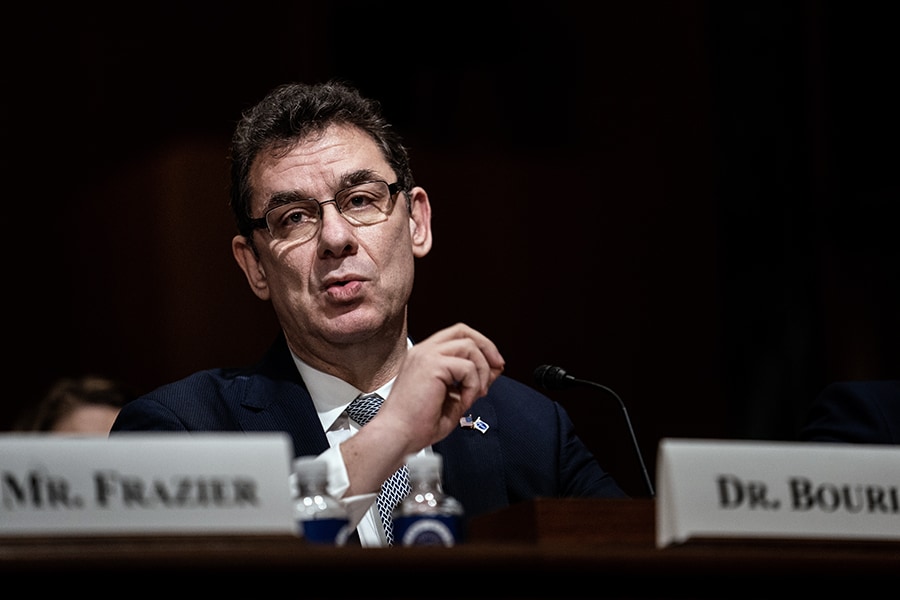
All eyes on Pfizer as Trump pushes for vaccine by October
Despite slim chances that its vaccine will be ready by October, Pfizer has big incentives to hint that it might be
 Albert Bourla, chief executive of Pfizer, testifies at a Senate Finance Committee hearing in Washington on Feb. 26, 2019. Despite slim chances that its coronavirus vaccine will be ready by October 2020, Pfizer has big incentives to hint that it might be; Image: Erin Schaff/The New York Times
Albert Bourla, chief executive of Pfizer, testifies at a Senate Finance Committee hearing in Washington on Feb. 26, 2019. Despite slim chances that its coronavirus vaccine will be ready by October 2020, Pfizer has big incentives to hint that it might be; Image: Erin Schaff/The New York Times
In media appearances and talks with investors, Pfizer’s chief executive nearly always mentions a word that is so politically perilous, most of his competitors shy away from it: October.
“Right now, our model — our best case — predicts that we will have an answer by the end of October,” the chief executive, Dr. Albert Bourla, told the “Today” show earlier this month. In other interviews, he has said he expected a “conclusive readout” by then, with an application for emergency authorization that could be filed “immediately.”
Bourla’s statements have put his company squarely in the sights of President Donald Trump, who has made no secret of his desire for positive vaccine news to boost his chances on Election Day, Nov. 3. “We’re going to have a vaccine very soon. Maybe even before a very special date,” Trump said recently.
And yet by all other accounts, the idea that it will be ready in October is far-fetched. Even if the vaccine shows promising signs in clinical trials — still a big if — the company will not have collected enough data by then to say with any statistical confidence that it is safe and effective.
By repeating a date that flies in the face of most scientific predictions, Bourla is making a high-stakes gamble. If Pfizer puts out a vaccine before it has been thoroughly tested — something the company has pledged it will not do — it could pose a major threat to public safety. The perception matters, too: If Americans see the vaccine as having been rushed in order to placate Trump, many may refuse to get the shot.
©2019 New York Times News Service




